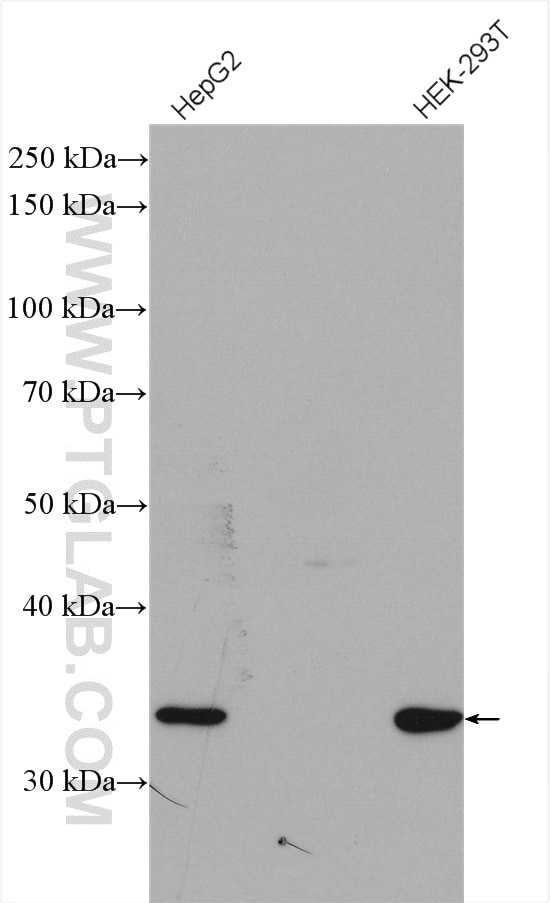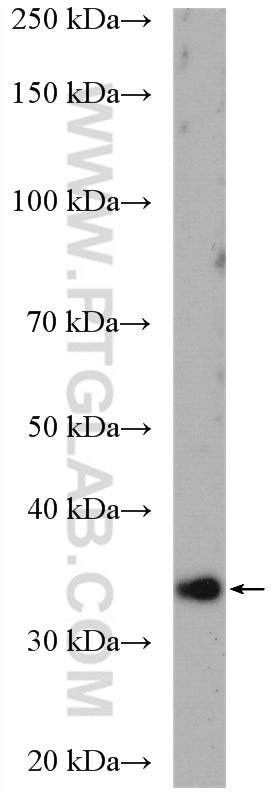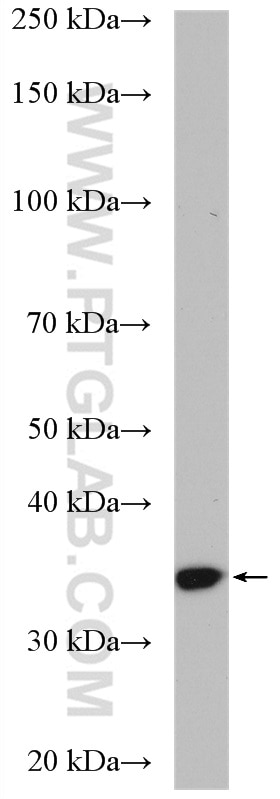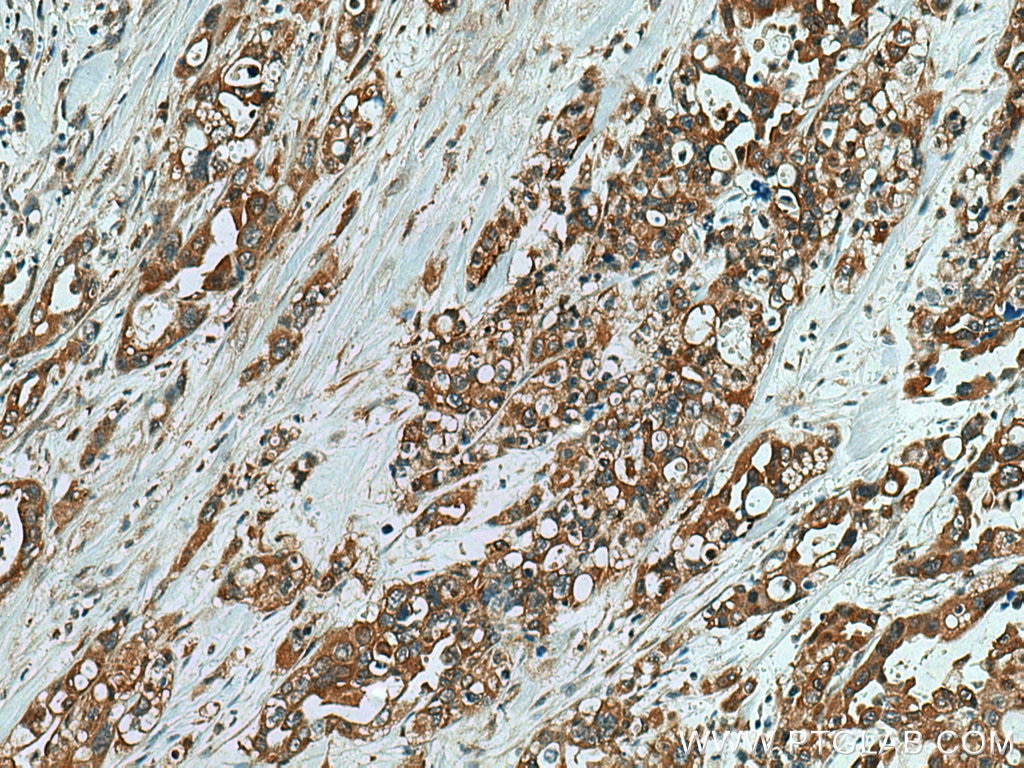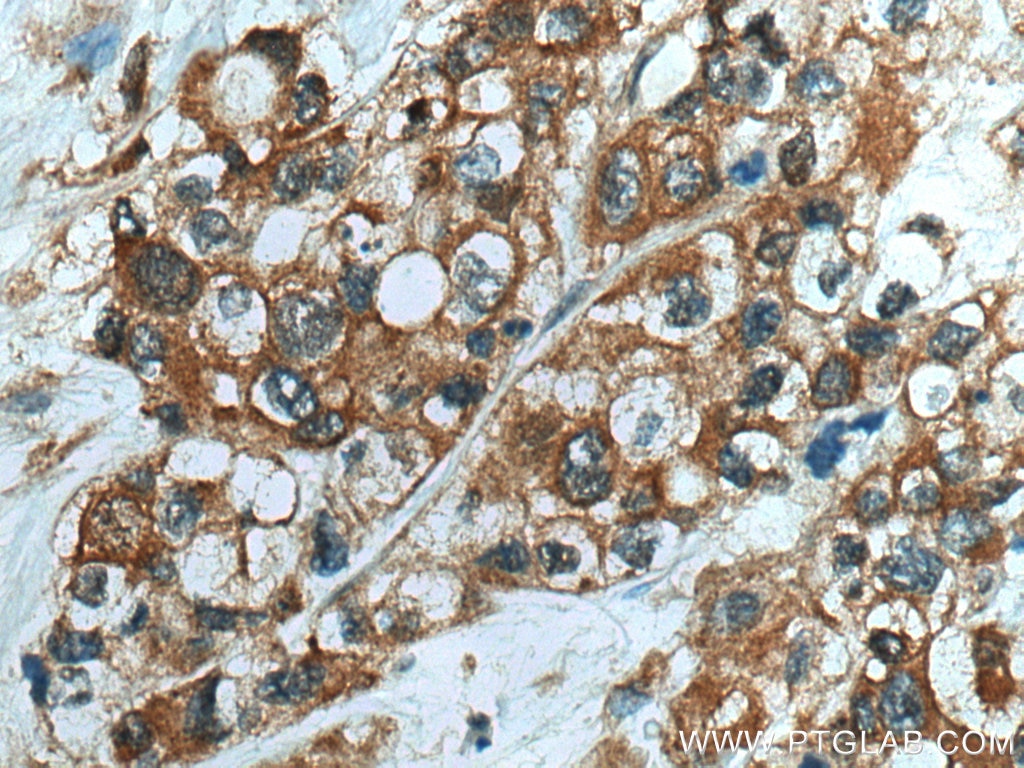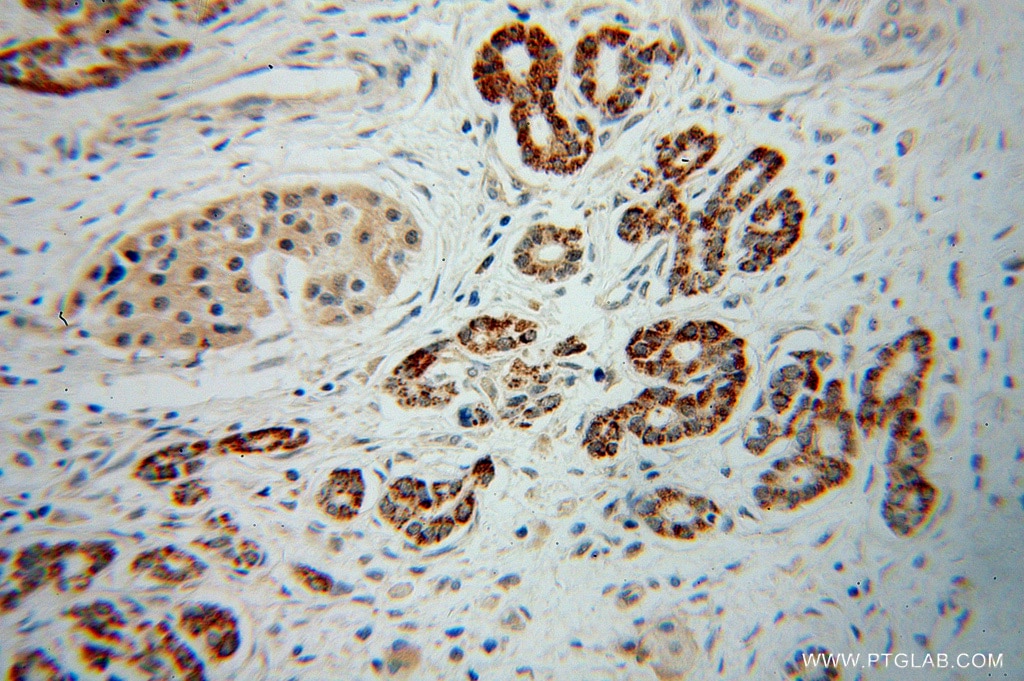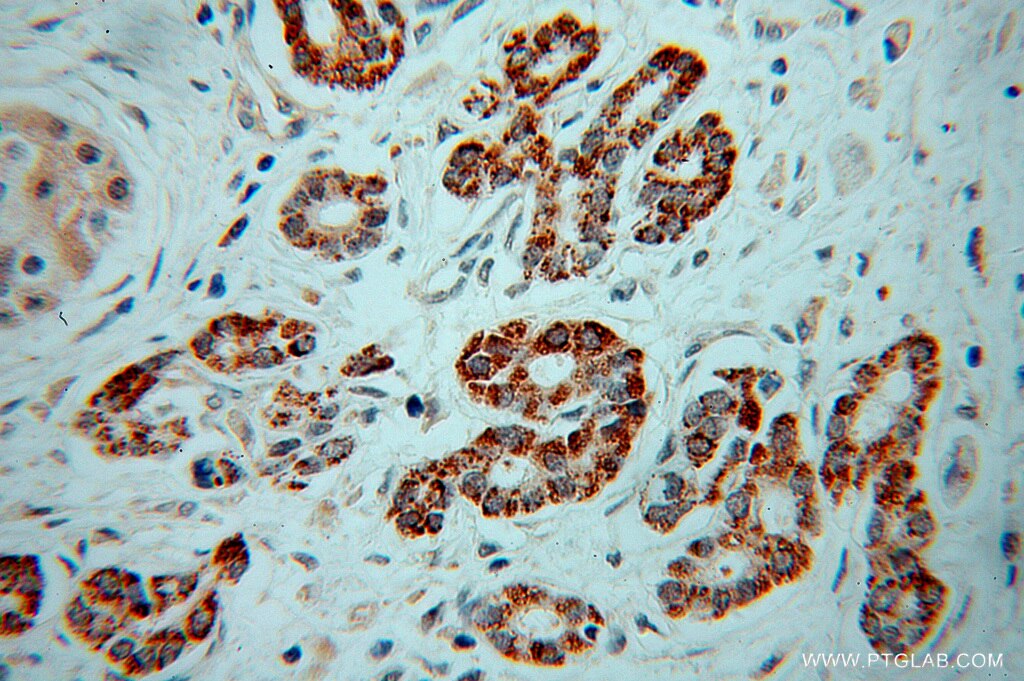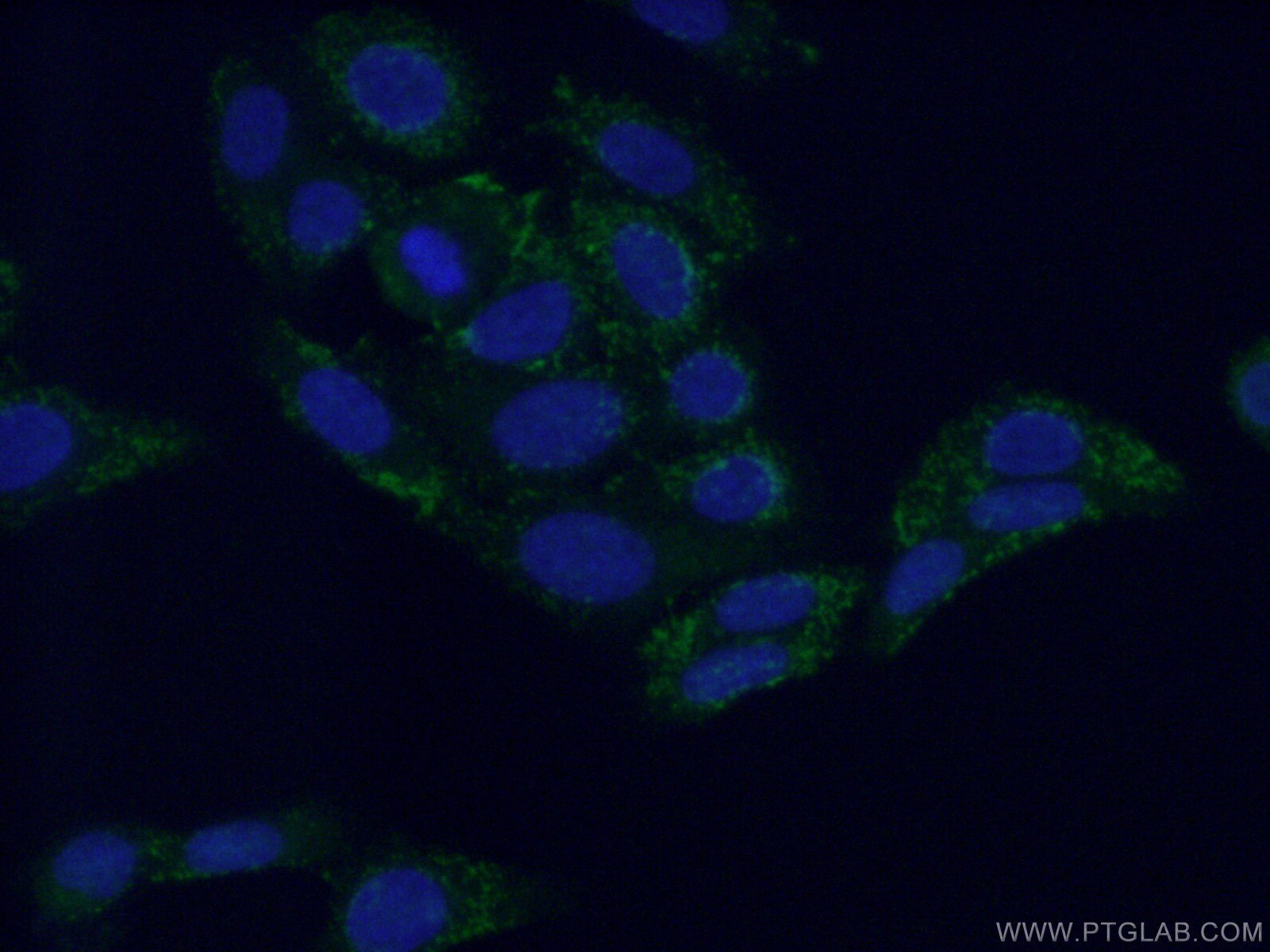Tested Applications
| Positive WB detected in | HepG2 cells, HeLa cells, HEK-293T cells |
| Positive IHC detected in | human pancreas cancer tissue Note: suggested antigen retrieval with TE buffer pH 9.0; (*) Alternatively, antigen retrieval may be performed with citrate buffer pH 6.0 |
| Positive IF/ICC detected in | HepG2 cells |
Recommended dilution
| Application | Dilution |
|---|---|
| Western Blot (WB) | WB : 1:500-1:3000 |
| Immunohistochemistry (IHC) | IHC : 1:200-1:800 |
| Immunofluorescence (IF)/ICC | IF/ICC : 1:50-1:500 |
| It is recommended that this reagent should be titrated in each testing system to obtain optimal results. | |
| Sample-dependent, Check data in validation data gallery. | |
Published Applications
| KD/KO | See 1 publications below |
| WB | See 1 publications below |
| IHC | See 1 publications below |
Product Information
14380-1-AP targets NIT1 in WB, IHC, IF/ICC, ELISA applications and shows reactivity with human samples.
| Tested Reactivity | human |
| Cited Reactivity | human |
| Host / Isotype | Rabbit / IgG |
| Class | Polyclonal |
| Type | Antibody |
| Immunogen |
CatNo: Ag5764 Product name: Recombinant human NIT1 protein Source: e coli.-derived, PGEX-4T Tag: GST Domain: 1-243 aa of BC046149 Sequence: MLGFITRPPHRFLSLLCPGLRIPQLSVLCAQPRPRAMAISSSSCELPLVAVCQVTSTPDKQQNFKTCAELVREAARLGPCLAFLPEAFDFIARDPAETLHLSEPLGGKLLEEYTQLARECGLWLSLGGFHERGQDWEQTQKIYNCHVLLNSKGAVVATYRKTHLCDVEIPGQGPMCESNSTMPGPSLESPVSTPAGKIGLAVCYDMRFPELSLALAQAGAEILTYPSAFGSITGPAHWEPVSS Predict reactive species |
| Full Name | nitrilase 1 |
| Calculated Molecular Weight | 40 kDa |
| Observed Molecular Weight | 32-36 kDa |
| GenBank Accession Number | BC046149 |
| Gene Symbol | NIT1 |
| Gene ID (NCBI) | 4817 |
| RRID | AB_2151314 |
| Conjugate | Unconjugated |
| Form | Liquid |
| Purification Method | Antigen affinity purification |
| UNIPROT ID | Q86X76 |
| Storage Buffer | PBS with 0.02% sodium azide and 50% glycerol, pH 7.3. |
| Storage Conditions | Store at -20°C. Stable for one year after shipment. Aliquoting is unnecessary for -20oC storage. 20ul sizes contain 0.1% BSA. |
Protocols
| Product Specific Protocols | |
|---|---|
| IF protocol for NIT1 antibody 14380-1-AP | Download protocol |
| IHC protocol for NIT1 antibody 14380-1-AP | Download protocol |
| WB protocol for NIT1 antibody 14380-1-AP | Download protocol |
| Standard Protocols | |
|---|---|
| Click here to view our Standard Protocols |

